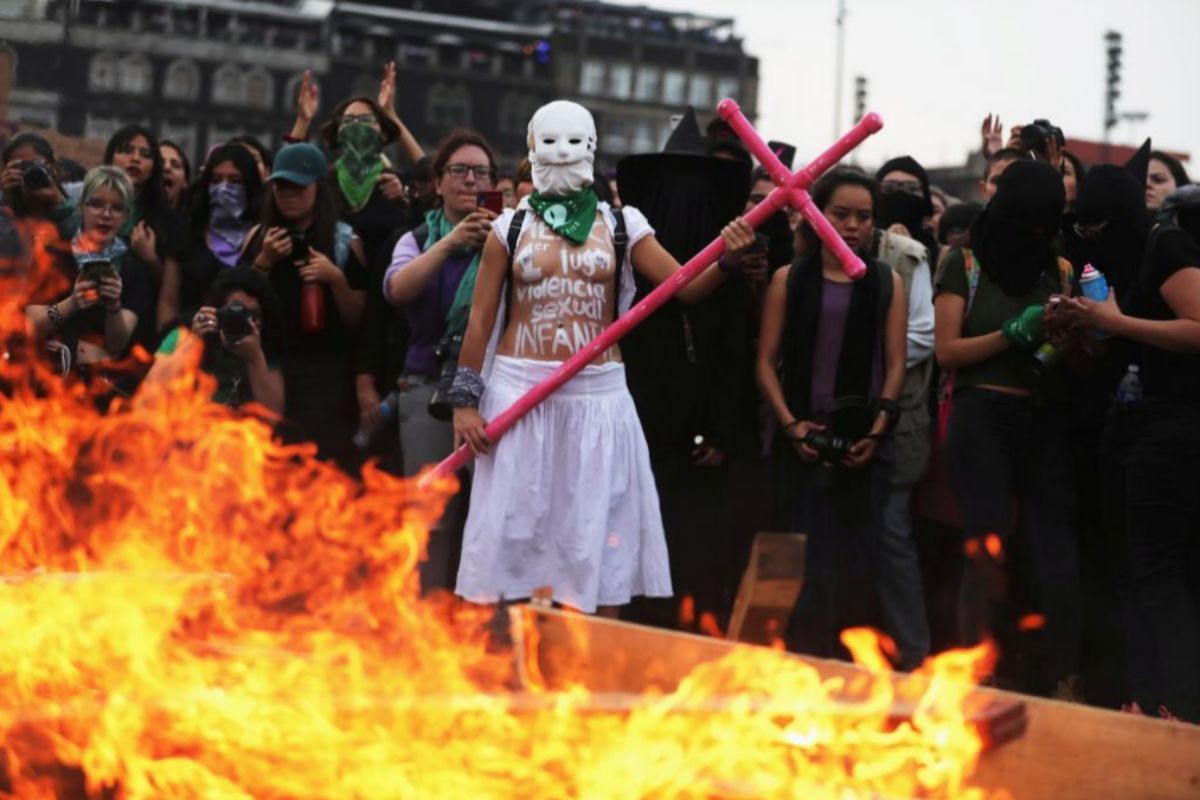- America. 2019, the bloodiest year in the recent history of Mexico
- Demonstrations: The indignation of feminists runs into vandalism in the streets of Mexico City
Mexican women want to make history of their absence. On March 9, it was marked in red on the calendar since the feminist collective 'Brujas del Mar' called for a national women's strike, one day after 8-M. This is the first time that an act of this nature is celebrated in Mexico. For 24 hours, 22 million Mexicans are invited to suspend any activity , not to consume or produce, nor to attend work or school, or go outside. The protest aspires to be a reality bath for those who minimize the contribution of women to society and, at the same time, imply a desperate cry for equality and protection against sexist attacks.
The consequences of this strike have been felt since the early morning in the big cities. The financial district of Mexico City presents a more typical aspect of the weekend than of the working day; the usual traffic that saturates its avenues has been reduced to more than half , many shops and businesses have closed their doors due to the impossibility of operating without women and in the subway, the wagons reserved for women and children move with hardly any travelers to the What to transport The only immutable ingredient in the face of the strike is the informal market: food stalls, shoe shine or small stalls continue with their usual routine, although with fewer customers.
The call has been widely accepted in virtually all sectors of society. A total of 153 large companies (including Santander or BBVA) have joined it; so have the main universities in the country, political parties, media, state governments, ministries, secretariats and other state institutions. In Mexico, women represent 40% of the workforce and own 54% of the total workload, so, according to the latest calculations, the decision to stop their activities for a day could leave economic losses that are around 37,000 million pesos (about 1,800 million euros).
The illusion generated by the mobilization in society has not been replicated with the same enthusiasm in the López Obrador Government. Despite the unity shown in this regard by all the women who make up his Government, the president continues to show doubts when supporting the call. Recently, and after being asked if he considers himself a feminist, López Obrador replied that he is "humanist" and when speaking about the origins of the strike he complains that his conservative rivals are feeding the movement to harm his interests. This indecision and the wave of sexist murders (1,010 last year alone) have hit the president's popularity hard; In recent months its acceptance rate has fallen from 79% to 59%.
The Mexican authorities have not yet confirmed the participation data of this strike, although all preliminary reports point to a resounding success. To find a similar call historically, one would have to go back to October 24, 1975 in Iceland. That day, known as 'Women's Free Day' , 90% of Icelandic women decided not to attend their jobs to demand equality. This egalitarian movement allowed, five years later, Vigdis Finnbogadottir to become the first woman in the world to be elected president of a country. Mexico is still far from reaching that situation, but with this historic day they manage to take a great first step in the right direction.
According to the criteria of The Trust Project
Know more- Mexico
- Women's Day
8M The FGV equality plan will review supplements for the wage gap
8MOltra opens the door to new voices of feminism in full debate of the collective
8-M Feminist revolution in Madrid: neither alone nor drunk against machismo

